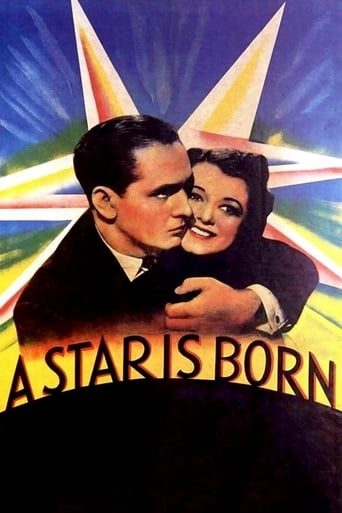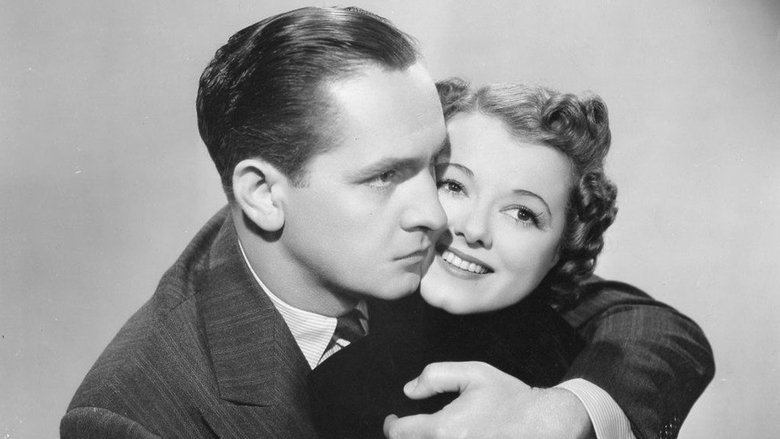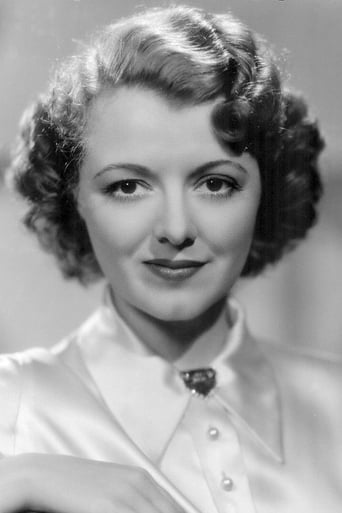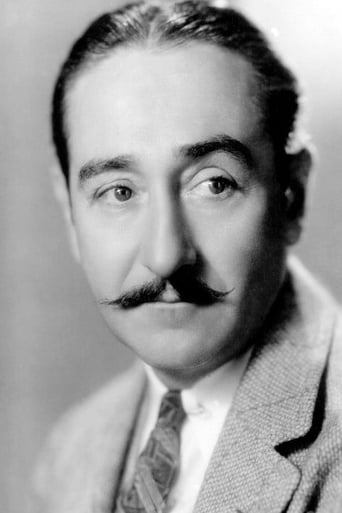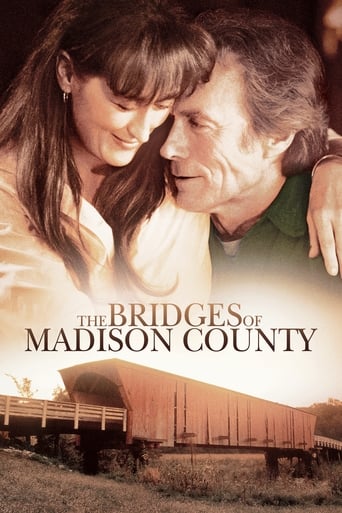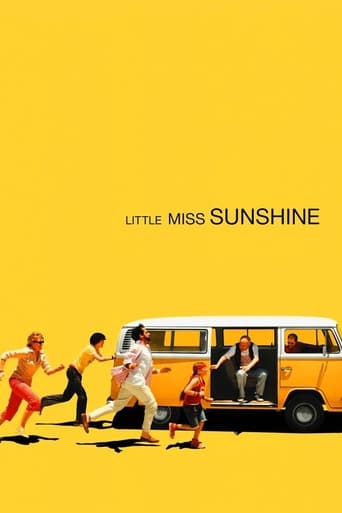A Star Is Born (1937)
Esther Blodgett is just another starry-eyed farm kid trying to break into the movies. Waitressing at a Hollywood party, she catches the eye of her idol Norman Maine, is sent for a screen test, and before long attains stardom as newly minted Vicki Lester. She and Norman marry, though his career soon dwindles to nothing due to his chronic alcoholism.
Watch Trailer
Free Trial Channels
Cast


Similar titles
Reviews
Truly Dreadful Film
A film with more than the usual spoiler issues. Talking about it in any detail feels akin to handing you a gift-wrapped present and saying, "I hope you like it -- It's a thriller about a diabolical secret experiment."
Each character in this movie — down to the smallest one — is an individual rather than a type, prone to spontaneous changes of mood and sometimes amusing outbursts of pettiness or ill humor.
Strong acting helps the film overcome an uncertain premise and create characters that hold our attention absolutely.
The story that would make it to the screen no less than three times over the years debuted in this Selznick International release from 1937.Everyone knows the story -- woman goes to Hollywood to make it big, makes it big, and then watches her famous has-been husband devolve into depression and alcoholism. It's a story that both glamorizes Hollywood and exposes the toll it takes on those who dare to survive in it.Janet Gaynor and Fredric March play the doomed couple, and William A. Wellman provides the direction. Technicolor was new at the time and it shows. W. Howard Greene received a special Academy Award for the film's color cinematography, but it's really a quite ugly film. The colors are muddy and murky, and the lighting choices are odd -- some scenes are so darkly lit it's literally difficult to see the actors, like a film noir in color."A Star Is Born" won the Academy Award for Best Original Story, which was written by Wellman and Robert Carson. Carson also snagged a nomination, along with Dorothy Parker and Alan Campbell, for writing the screenplay based on that story, but lost to the year's Best Picture winner, "The Life of Emile Zola." In addition to its two writing nominations, the film was also nominated for Best Picture, Best Director (Wellman), Best Actor (March), Best Actress (Gaynor), and Best Assistant Director, in only the fifth and final year that odd category would exist. As an Oscar buff, my favorite scene in the movie is the one set at an Academy Awards banquet, as it gives an indication of what the ceremonies were like before they moved to the more traditional theater settings we're used to now.Grade: B+
What price does Hollywood cost? Five years after Lowell Sherman and Constance Bennett asked that question, a new film, unofficially based upon that almost forgotten classic, came along, and created a legend which has (thus far) spawned two remakes, one even more famous than itself. Hollywood has always created dreams that turned into nightmares, not only for the young hopefuls who came out from the middle of nowhere and ended up jumping off the Hollywood sign, but for those who had made it and were branded "has-beens". Think of the fictional Norma Desmond and the Hudson Sisters. Think of the real life sign jumper Peg Entwistle, as well as dwindling stars like John Barrymore, Ramon Novarro, Montgomery Clift and others who couldn't handle the pressures that hit them for various reasons and ended up with somewhat tragic finales. Hollywood can present much beauty, but for those inside the business, it is a living hell.Esther Blodgett (Janet Gaynor) is a young hopeful from hundreds of miles from Hollywood who longs to come to "Tinseltown" and work with the legends like the fictional Norman Maine (Fredric March), an Oscar Winner slowly falling down the ranks thanks to bad publicity, bad films, and especially, way too much booze. She struggles for months even just to get the rent paid and is on the verge of quitting when a miracle happens. By chance, she meets Mr. Maine who takes a liking to her (having earlier "shusshed!" her at a concert) and presents her to movie mogul Oliver Niles (Adolph Menjou) as a potential new star. She's fresh and unique, likable and talented, perky and sober. In short, she's everything Norman Maine is not. Her rise will mark his downfall, and yet nobody knows other than a few people that it was his confidence in her which helped build her star even brighter than his own."Esther Victoria Blodgett!", press agent Lionel Stander shouts, aghast. Cutting out "Blodgett", Niles comes up with "Vicky Lester", telling everybody to shout out "Say Vicky Lester!", to which Stander cynically replies "Vicky Vicky". But a bit part isn't enough for her, and at Norman's request, she gets the female lead in his newest film which is a smash for her but a critical slap for him. His pictures continue to bomb, and hers are hits, winning her an Oscar which results in his public humiliation. By this time, Norman and Victoria are married (under their real names), the offended Stander is outraged, and the stage is set for a finale both tragic and triumphant.As much as we have been warned about Hollywood success, we haven't learned that only a few rise to the top and stay there without any type of scandal. Norman Maine, whether being Lowell Sherman's version in "What Price Hollywood" or March's or James Mason or even Kris Kristofferson, can't bear a morning shoot without a drink, and for each drink he takes marks another notch towards his downfall. Gaynor, pretty much a has-been herself after being replaced at 20th Century Fox with Shirley Temple taking over the "leading star" spot, needed a hit like "A Star is Born" and is outstanding. She's comical (imitating a variety of stars at a Hollywood party) and touching, while March is profound, even in Norman's most drunken state.Playing a film studio owner/lead producer much like Selznick or Goldwyn, Menjou is a gentle patriarchal figure, loyal to March's Norman but unable to help him get another leading role thanks to the proved failures of his past. Stander is gruff and even nasty, letting his vile towards Norman spill out so evilly that you know that even the strongest person fighting to stay sober would be tempted to break their pledge. Andy Devine is amusing as Gaynor's confidante, with May Robson authoritative as her beloved grandmother and an unbilled Clara Blandick dominating every moment of the opening scene as the movie-hating aunt.Everything about this film is outstanding, with excellent Technicolor photography and a structure which has the film open and end as if it were the visions inside the opening shot of the first page of the screenplay and its last as the film wraps up. William Wellman was a master of storytelling and utilized Dorothy Parker and Alan Campbell's screenplay to almost become a "Hollywood Bible" to indicate the ten commandments of becoming a star with "Hell" being big stars becoming has-beens for breaking these rules.
A rising young Hollywood actress marries a washed-up alcoholic star in the original version of the story that was remade twice. While March is fine as usual as the actor whose boozing ruins his career, Gaynor seems all wrong in the role that Judy Garland made her own. Gaynor has neither the looks nor the charisma needed to make it believable that a movie star would fall flat for her or that the movie-going public would make her an overnight sensation. Menjou heads a good supporting cast that includes veteran character actors Stander and Devine in early roles. The cast also includes Robson, who was born thirty years before Hollywood was founded!
I saw all three versions of "A Star is Born" in the past, and enjoyed watching this original and the 1954 remake again after so many years. What superb acting by Frederic March as Norman Maine, Janet Gaynor as Vicki Lester/Esther Blodgett, and all of the rest of this excellent cast. After many years between viewings, I was struck by the uniqueness of this film. Two aspects in particular stand out. First, that it is really three movies in one, with distinct stories. Second, that it has at least three major messages. The latter are so carefully woven into the script – and so well acted out – that most viewers may not be consciously aware of them. So, the genius of the script is in its putting all of this together in a most enjoyable and watchable story, without hitches or glitches.Most movies have a single story, with the different characters and roles as part of it. Usually, they center on the hero or heroine, the romance of the two, or a major plot of war, crime, intrigue or adventure. But, in this original, we see first, a story of a young small-town girl, Esther/Vicki, who dreams of becoming a movie star. The opening scenes set the stage for her "escape" to Hollywood. The message is about taking risks to chase one's dreams (as her grandmother counsels and relates of past family history). The next scenes show her difficulties in trying to break into the movies. She is behind in her rent and finds odd jobs as she looks for a break. We see the hopelessness and little likelihood of someone making it in Hollywood (one in 100,000, the woman at the acting agency tells her). But, we also see her determination to keep trying.Now the second story begins to unfold. Only, we understand that the male lead's story (Norman Maine) has been going on for many years in Hollywood. He has reached his peak, and while still near the top, he has become a headache and problem to his studio because of his drinking the past several years. We don't know why he apparently has never married, but it's clear that his career has been his obsession. Now he is becoming a big publicity problem for the studio. By coincidence, these two people meet, and the third story begins. A deep love blossoms between the two with their ultimate marriage. Lester's star rises and the first story fades as her dream is fulfilled – she has become a star. The male lead's story and the love story are now tightly (no pun intended) intertwined. In his love for her, and awareness of his drinking problem and acting decline, Maine bows out of films and stops drinking. Over time, he becomes distant as he realizes that he is no longer recognized. Finally, after a messenger boy calls him by his wife's stage name ("Mr. Lester"), he snaps and goes back to drinking. After more run-ins with the law and drying out in a sanitarium, Maine is set to return home. But a chance encounter with the studio publicity man, Matt Libby (excellently played by Lionel Stander), spells doom for Maine. He can't stand the PRs insults about being supported by his wife, and after a brawl, he steps up to the bar to resume his drinking. The next scenes show Lester and studio head Oliver Niles (Adolphe Menjou) worrying about where Maine is after four days. They get a call and Lester gets a judge to release Maine to her care. The courtroom scene is a great example of the humiliation of the man, now having sobered up, standing with other drunks, many of whom may live in the gutter, and being further embarrassed by having his wife appeal for him. Back in their California beachfront estate, Lester and Niles have put Maine to bed. They think he is sleeping but he hears them talking in the next room. Because of her love for Maine, Lester tells Niles that she is quitting the movies, and that she and Maine will go away together. Maine can hear Niles urge Lester not to give up her career at its peak. We can see the anguish and torment on his face. In Maine, we have a real story of conflict between the man, with his ego and no longer being revered as a movie idol, and his deep love for his wife and genuine respect and hopes for her success.I won't describe the last scenes – of Maine and Lester. His story ends on a tragic note. And the love story ends on a sad note. The subtle messages become clear. First, stardom, wealth and success don't buy happiness. Remember the veranda scene when Maine tells Lester that she now owns the world as they look out over the city lights below? And then he says that he has never found happiness with success. Second, that pride and ego can destroy love when one person can't humble himself and struggle to rise above his failings for himself and that love. Even as an alcoholic, Maine was able to quit once – with help. But now he doesn't want to try again. Third, we should not be fooled by the allure of Hollywood and success that come mostly from phony build-ups and PR (i.e. the fictitious bio and lies by the studio PR guy to the press and public). I couldn't help but think of the adulation so many still heap on the movie stars and celebrities of today. And, how so few of them seem to have real happiness and love with their wealth and worldly success.

